Tons of money have been set aside to build a new AI supercomputer lab here.
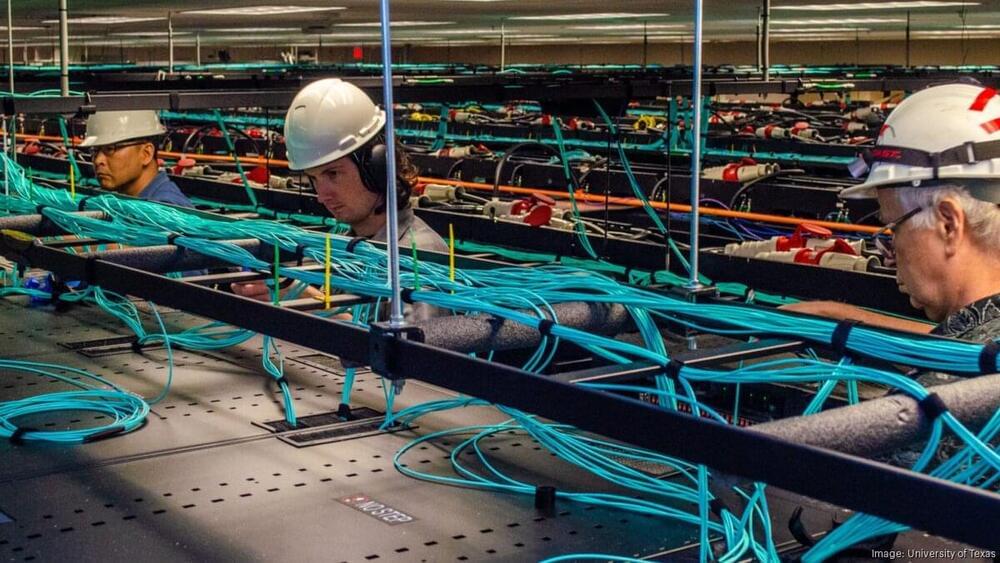

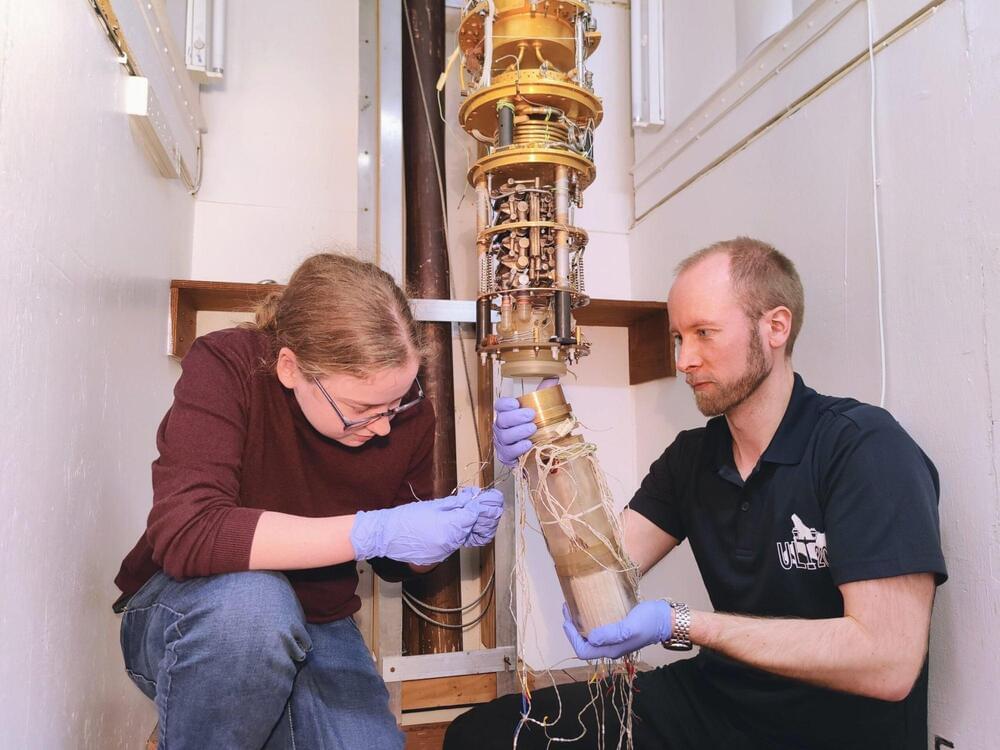
Around 80% of the universe’s matter is dark, meaning it is invisible. Despite being imperceptible, dark matter constantly streams through us at a rate of trillions of particles per second. We know it exists due to its gravitational effects, yet direct detection has remained elusive.
Researchers from Lancaster University, the University of Oxford, and Royal Holloway, University of London, are leveraging cutting-edge quantum technologies to build the most sensitive dark matter detectors to date. Their project, titled “A Quantum View of the Invisible Universe,” is featured at the Royal Society’s Summer Science Exhibition. Related research is also published in the Journal of Low Temperature Physics
The team includes Dr. Michael Thompson, Professor Edward Laird, Dr. Dmitry Zmeev, and Dr. Samuli Autti from Lancaster, Professor Jocelyn Monroe from Oxford, and Professor Andrew Casey from RHUL.
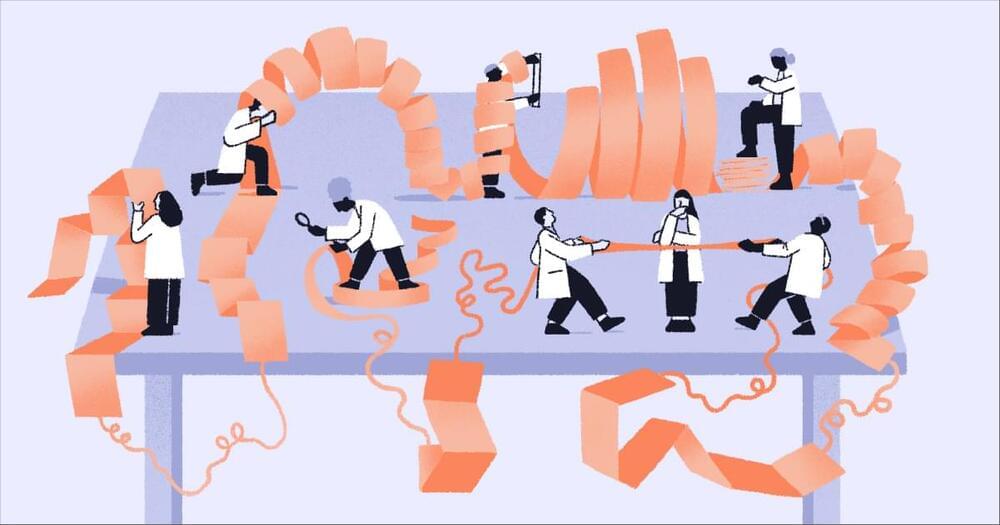
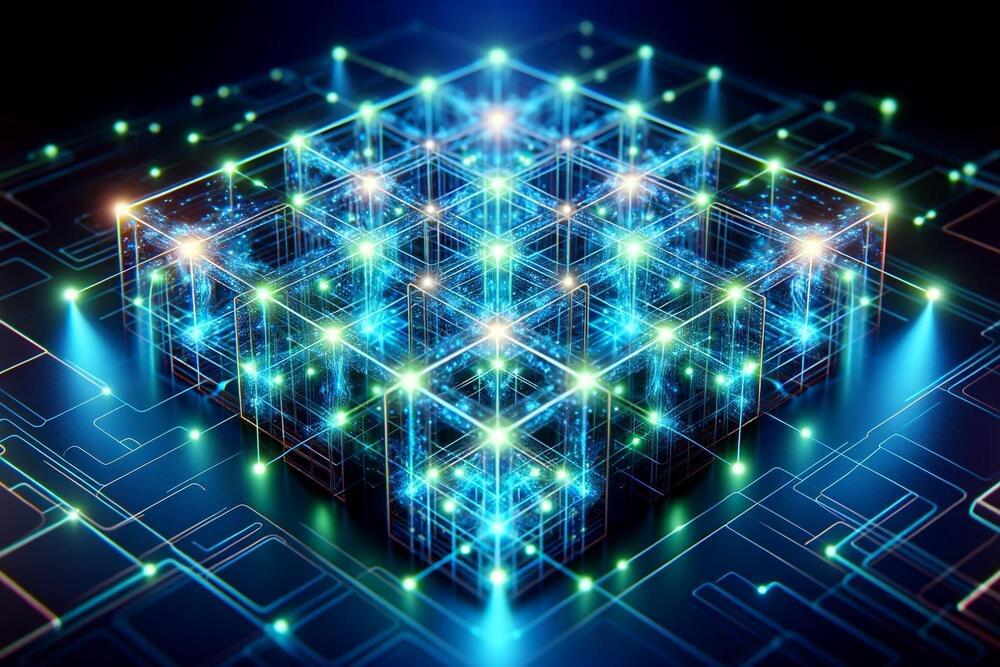
Researchers have developed a genetic algorithm for designing phononic crystal nanostructures, significantly advancing quantum computing and communications.
The new method, validated through experiments, allows precise control of acoustic wave propagation, promising improvements in devices like smartphones and quantum computers.
Quantum Computing Revolution
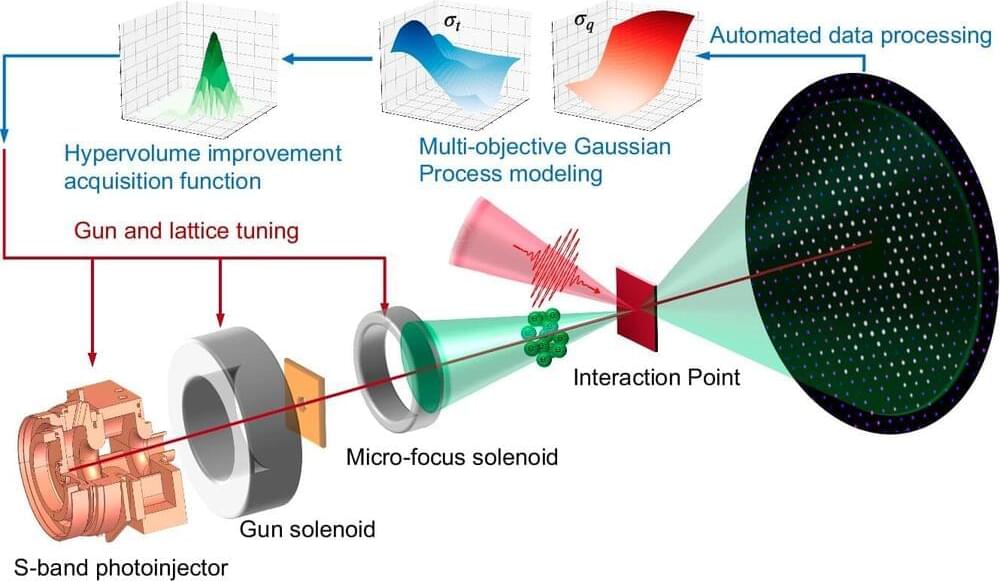
Imagine being able to watch the inner workings of a chemical reaction or a material as it changes and reacts to its environment—that’s the sort of thing researchers can do with a high-speed “electron camera” called the Megaelectronvolt Ultrafast Electron Diffraction (MeV-UED) instrument at the Linac Coherent Light Source (LCLS) at the U.S. Department of Energy’s SLAC National Accelerator Laboratory.
Now, in two new studies, researchers from SLAC, Stanford and other institutions have figured out how to capture those tiny, ultrafast details with more accuracy and efficiency.
In the first study, recently published in Structural Dynamics, one team invented a technique to improve time resolution for the electron camera.
In this thought-provoking lecture, Prof. Jay Friedenberg from Manhattan College delves into the intricate interplay between cognitive science, artificial intelligence, and ethics. With nearly 30 years of teaching experience, Prof. Friedenberg discusses how visual perception research informs AI design, the implications of brain-machine interfaces, the role of creativity in both humans and AI, and the necessity for ethical considerations as technology evolves. He emphasizes the importance of human agency in shaping our technological future and explores the concept of universal values that could guide the development of AGI for the betterment of society.
00:00 Introduction to Jay Friedenberg.
01:02 Connecting Cognitive Science and AI
02:36 Human Augmentation and Technology.
03:50 Brain-Machine Interfaces.
05:43 Balancing Optimism and Caution in AI
07:52 Free Will vs Determinism.
12:34 Creativity in Humans and Machines.
16:45 Ethics and Value Alignment in AI
20:09 Conclusion and Future Work.
SingularityNET was founded by Dr. Ben Goertzel with the mission of creating a decentralized, democratic, inclusive, and beneficial Artificial General Intelligence (AGI). An AGI is not dependent on any central entity, is open to anyone, and is not restricted to the narrow goals of a single corporation or even a single country.
The SingularityNET team includes seasoned engineers, scientists, researchers, entrepreneurs, and marketers. Our core platform and AI teams are further complemented by specialized teams devoted to application areas such as finance, robotics, biomedical AI, media, arts, and entertainment.
Website: https://singularitynet.io.
X: https://x.com/SingularityNET
Instagram: / singularitynet.io.
Discord: / discord.
Forum: https://community.singularitynet.io.
Telegram: https://t.me/singularitynet.
WhatsApp: https://whatsapp.com/channel/0029VaM8…
Warpcast: https://warpcast.com/singularitynet.
Mindplex Social: https://social.mindplex.ai/@Singulari…
Github: https://github.com/singnet.
Linkedin: / singularitynet.

A grass-green snake from Vietnam with yellow eyes, blue lips and a brick-red tail has been identified as a distinct species.
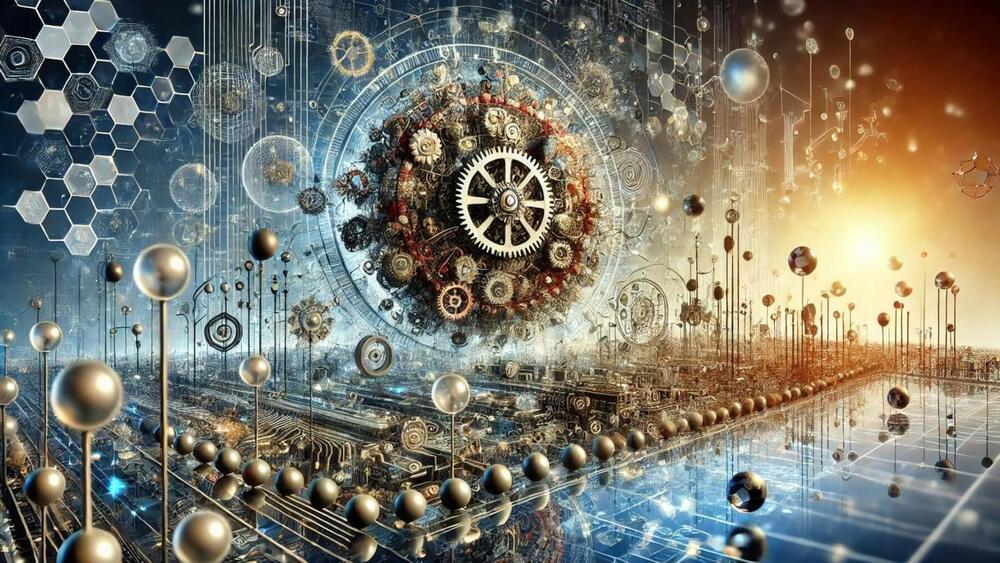
Second, ants need to climb or hold onto the vehicle after locating it. The metallic paint on the vehicle surface is slippery and may potentially select for species with good climbing/gripping abilities. The climbing and moving performance of ants is determined by the morphological characteristics of leg segments (Beutel et al., 2020). Arboreal ants have hooked pretarsal claws, well-developed adhesive pads and fine tarsal hairs, allowing them to walk on smooth vertical substrates. Ground-dwelling ants, on the contrary, are less capable of moving on smooth surfaces such as vehicle paint because of their straight pretarsal claws and the lack of adhesive pads and tarsal hairs (Orivel et al., 2001).
Third, the temperature on the surface and in the interior of the vehicle can increase dramatically when exposed to sunlight, especially in the summer, indicating the thermal tolerance of hitchhiking species may play an important role in determining their colonisation success (Nixon et al., 2019). Arboreal ants are generally more heat-and drought-tolerant than ground-dwelling ants are (Hood & Tschinkel, 1990 ; Leahy et al., 2022), which could potentially translate into a higher probability of successful establishment at the destination due to better survival chance with high temperatures on or in the vehicle.
It is likely that ant hitchhiking events would be much more common than what has been reported through our Facebook group. We suspect that whether vehicle owners are aware of the Facebook group and/or vehicle owners are willing to report their observations to our Facebook group would play a critical role in the number of incidents we received for this citizen science project. Nonetheless, we were able to record at least 52 hitchhiking cases with complete information over a 7-year period. Despite a relatively small dataset, the estimated sampling completeness was appropriate (Figure S3). To our knowledge, this is the first report profiling active ant hitchhiking on vehicles via citizen science efforts, highlighting the importance of establishing a predictive framework for forecasting future hitchhikers based on behavioural, morphological, physiological and ecological traits of ant species. Such a framework will help facilitate the development of effective management strategies for mitigating ant invasions via active hitchhiking on vehicles.
Join my mailing list https://briankeating.com/list to win a real 4 billion year old meteorite! All.edu emails in the USA 🇺🇸 will WIN!
What would Brian Greene do if he could travel through time, and which future technology is he most excited about?
After our full interview, I had the privilege to sit down with Brian and ask him a few more questions. Enjoy this exclusive Q\&A with one of the most renowned physicists of our time!
And if you haven’t already, check out our full interview: • Brian Greene: The Truth About String…
Brian Greene is an American theoretical physicist and mathematician. He’s a professor at Columbia University and the director of Columbia’s Center for Theoretical Physics. He has gained a lot of popularity through his books that bring complex physical issues closer to general audiences: The Elegant Universe (1999), Icarus at the Edge of Time (2008), The Fabric of the Cosmos (2004), and The Hidden Reality (2011), a book he promoted in the TV show The Big Bang Theory!
Additional resources: